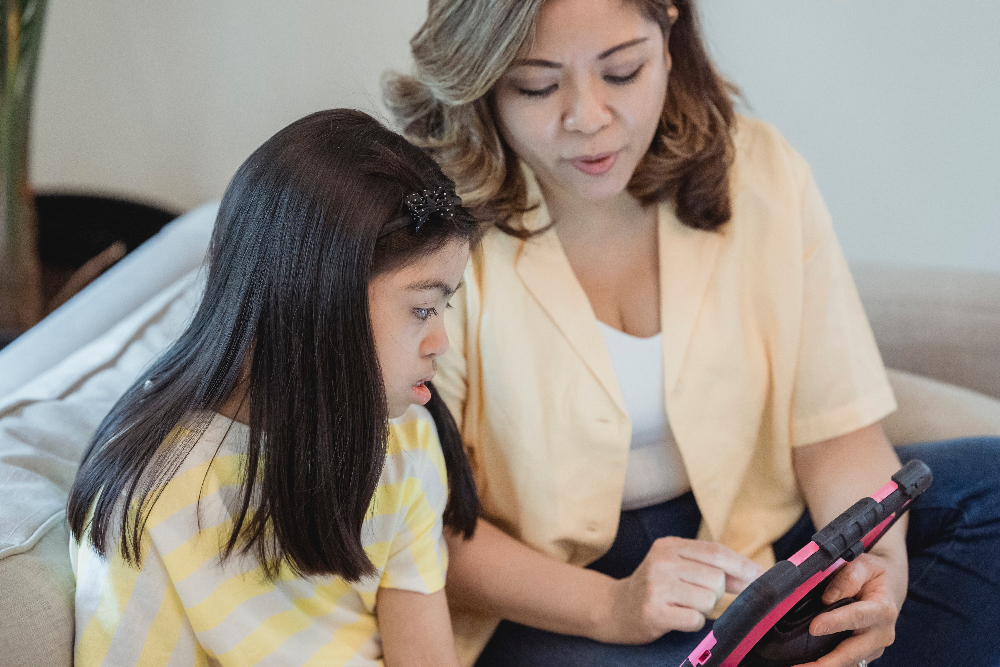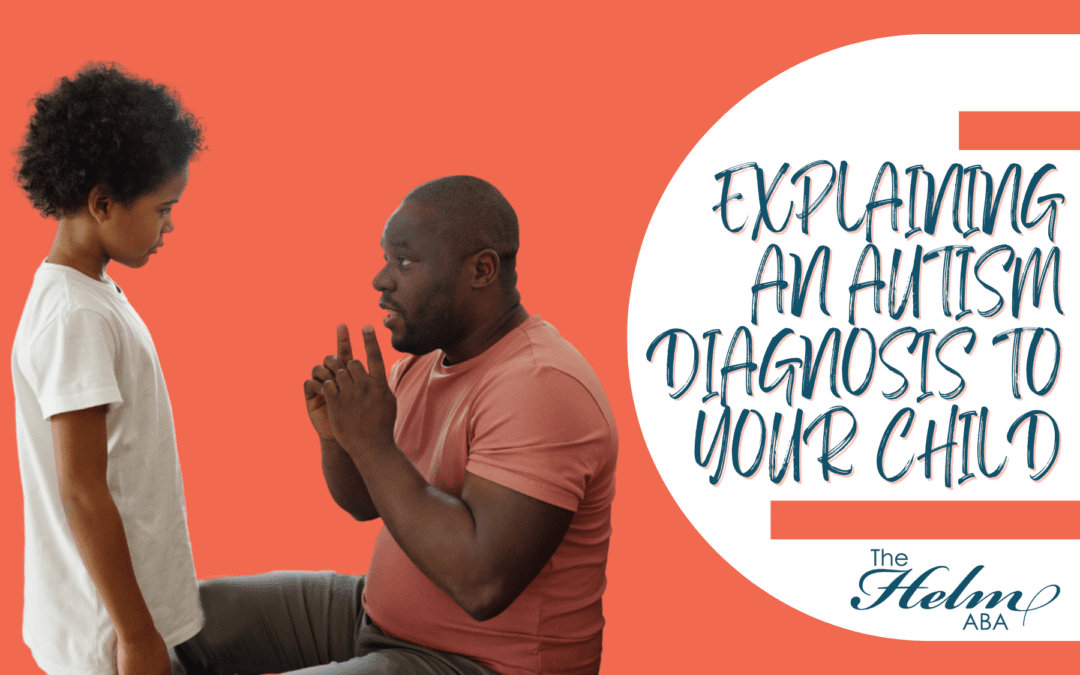The idea of sharing an autism diagnosis with your child can be just as overwhelming as receiving the diagnosis in the first place. We all want to protect our children from pain, fear, and judgment, but at the end of the day, trying to hide the label doesn’t remove it. So let’s talk about why it is important to talk to your child about their autism diagnosis, when you should have the conversation, and some ways you might approach it.
Why tell my child they have autism?
While putting the label of autism on your child may be difficult, it may be helpful to think about it from another perspective. If a doctor gave the diagnosis of diabetes, would you explain how and why eating certain foods affects them? Would you tell them that they are still loved and loveable even though they have to eat differently and test their blood sugar? It might also be important to talk about how other people may have questions about why they have to do those things they do. For all intents and purposes, an autism diagnosis is the same. Instead of the body not producing enough insulin, they just have a different way of thinking than their peers. All that to say, if the child knows what their challenges are, they are better able to deal with them. Telling them also shows that you understand and respect them.
It is also important to remember that they are likely to find out at some point that they have an autism diagnosis so it would be better to hear it from you. They love you, and they trust you. To hear it from you means that it is coming from a place of compassion and care. Yes, it may still be a difficult process to truly accept it, but when the news comes from a loved one, they know they have support.
When do I tell my child they have autism?
There is no perfect time to tell them. It really depends on their personality, cognitive ability, social awareness, and your readiness to have the conversation. If you haven’t had the time to truly process the information, you don’t need to force yourself to talk to them about it. Waiting until you are comfortable will help make the conversation more positive.
As a general rule, though, the earlier you can talk about it, the better. Not only will this make it more likely that the news comes from you, but it will also give your child more time to understand. At a young age, they won’t see the negatives or the stigma that many associate with autism. They haven’t had time to develop these biases. An early start means more time to understand who they are and what they need to be successful.
This doesn’t mean that if they are older, it’s bad. Some kids don’t receive a diagnosis until much later in life. That can’t be helped. Some parents just don’t know how to have this conversation until their child is older. That is fine, too. The bottom line is that you should tell your child whenever you are ready and you feel like they can handle the information.
How do I tell my child they have autism?
Again, there is not a perfect way to do this. Every child on the spectrum has a different set of challenges. That said, there are a few thing we recommend for most children:
- Stay positive! – It is easy to think about the challenges of autism, but a positive approach can make a big difference. Try saying something like, “Do you know the way you think is really special?” or “You are really unique because…“
- Everyone is different – Sticking with positivity, we can approach the conversation by explaining that everyone has something that
 makes them different, and that is great! You can give simple examples like “Mommy is tall and Daddy is short,” “I like video games and you like reading,” and “Jane is really fast, and you are great at drawing!” Autism is just another one of these differences.
makes them different, and that is great! You can give simple examples like “Mommy is tall and Daddy is short,” “I like video games and you like reading,” and “Jane is really fast, and you are great at drawing!” Autism is just another one of these differences. - Start slow – You don’t need to tell your child every last thing about autism right away. Ease them in by giving them small pieces of information. If they are interested, you can absolutely tell them more, but don’t be afraid to introduce it a little bit at a time.
- Read books – There are so many great resources out there for all ages. Remember that because everyone on the spectrum is different, not everything in a book will apply to your child. That’s ok! Those examples are just another chance to talk about how everyone is different and special.
- Remind them that they aren’t alone – Not only will you be there for them, there is a huge community of support! There are people with autism everywhere, and so many want to help. Try finding a local group where your child can meet others like them.
Finally, it is important to remind yourself that you don’t have to do this perfectly. There will be conversations that go better than others, and that is OK. Just remember that you are having these conversations to help your child. If you need more assistance, you can always reach out to us at The Helm. We are here to help!

